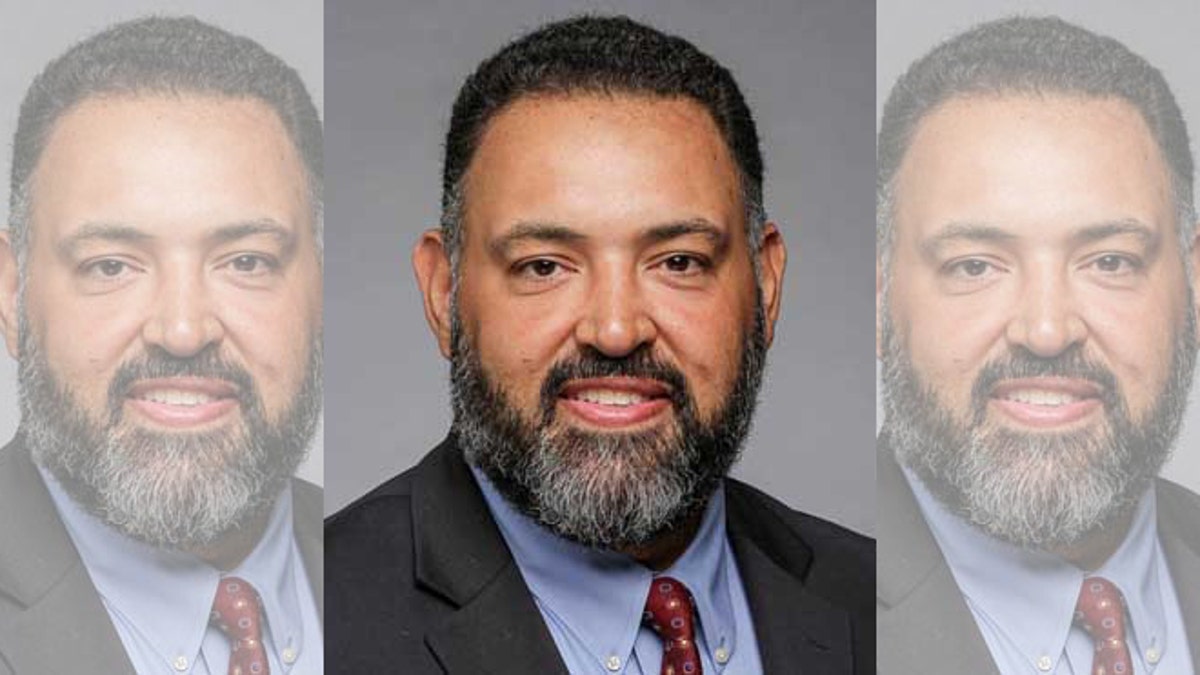
Judge Lou Olivera. (Image: via Facebook)
The defendant before Judge Lou Olivera admitted he had lied several times to the court about staying clean.
"Every two weeks we go to veterans’ court, and my urinalysis test had come back positive," Joe Serna, 41, told the Fayetteville, N.C., Observer. "I denied it at first."
At last, however, Serna admitted he had lied to the court.
Another defendant, another case, another excuse, another ruling.
But something was different – and significantly so – about this defendant and his account to the judge.
Serna, 41, was a veteran who had served in Afghanistan and been injured by a suicide bomber.
After he left the military, he sank into depression, running afoul of the law with a driving-while-impaired charge and several traffic violations. Serna, who did three tours of duty in Afghanistan, suffered from post-traumatic stress disorder (PTSD).
Olivera, 45, had more of an emotional reaction to Serna than perhaps another judge would have had thanks to having been a Special Forces Green Beret who served in the Gulf War.
In 2012, Olivera became the first Latino elected judge in North Carolina’s history. He serves on Cumberland County's 12th District Court.
The judge decided Serna needed something besides punishment, so he ordered him to return to court the next day to be jailed overnight for violating his probation.
When Serna reported to the court, Olivera was waiting. When he saw how scared and distraught Serna was in his courtroom, Olivera told the Observer, he decided to do something extraordinary.
"When Joe first came to turn himself in, he was trembling," Olivera told the Observer. "I decided that I'd spend the night serving with him."
The Fayetteville Police Department didn't have an available cell, so they got into the judge's car and Olivera drove to nearby Lumberton.
"Where are we going, judge?" Serna asked, according to the newspaper.
"We're going to turn ourselves in," Olivera said.
"He said he was going to stay with me," Serna told the newspaper. "I couldn't process a judge being my cellmate. They take me to the cell, and I'm sitting on my bunk. And, then, in walks the judge."
"I knew this was a very compassionate man," Serna said. "I know how involved he is with veterans, and he's a veteran himself. I got chills when he walked in."
The cell only had one bunk. Olivera let Serna take it and slept on two mattresses that were placed on the floor.
During the night, the two men spoke about their military experience, their families, their hopes, for almost 12 hours.
Olivera took a paternal role, advising Serna about how he could deal with the internal demons that had driven him to drink and act against his better judgment.
"He is a judge, but that night, he was my battle buddy," Serna told People magazine. "He knew what I was going through. As a warrior, he connected."
Serna spoke to the judge about seeing his crew die trapped in a submerged vehicle. He survived, after spending all night waiting for help.
"I lost my whole crew," Serna told People. "They were in the water with me. That tore me up. I couldn't escape that truck. I stayed there until somebody saved me."
Once back in civilian life, he tended to his medical problems, but turned a blind eye to his emotional ones, tuning them out with alcohol.
"I was having issues and would feed that with alcohol," Serna said. "I thought I was going down the right path. I didn't know I was going the wrong way."
Olivera, however, doesn’t want anyone lionizing his action.
"I thought about a story that I once read," Olivera told the Fayetteville Observer. "It talked about a soldier with PTSD in a hole – a family member, a therapist and a friend all throw down a rope to help the veteran suffering. Finally, a fellow veteran climbs into the hole with him.”
"The soldier suffering with PTSD asks, 'Why are you down here?' The fellow veteran replied, 'I am here to climb out with you.'”
"After serving in the Gulf War and seeing many suffer from injuries in service," the judge said, "I thought about that story when Joe walked in shaking. I do know that many veterans would have done the same. They would have gotten in the hole to help. And so did I."
Serna’s wife, Rocio, also a veteran, was astounded the judge stayed with her husband. She said she’s seen a positive change in her husband since that experience.
"When he told me this story, I was in disbelief," she told the Observer. "I said, 'No way.' The judge even bought doughnuts for the family when they came home."
Serna is still moved.
"I cannot even put into words how I feel about him," Serna said. "I look at him as a father. I've seen a lot of things, and this by far is the most compassionate thing I've ever seen anyone give to anybody. I will never let him down again."




















